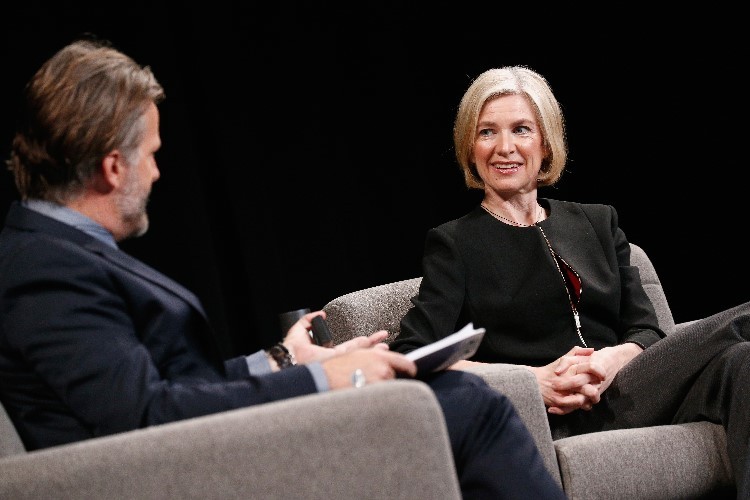The recognized pioneers of controversial gene-editing tool "Crispr-Cas9" are recently awarded by this year's Nobel Prize in Chemistry. Scientists Emmanuelle Charpentier and Jennifer Doudna are two women researchers that are recently added to the list of Nobel Prize winners of the world.
This tool has been controversial due to its past issues of allegedly altering the genes of two unborn twins in China to stop them from acquiring AIDS.
Crispr-Cas9 recognized by Nobel Prize

Head of Editorial on WIRED Robert Capps (L) interviews Technology Co-Inventor CRISPR-CAS9 Jennifer Doudna onstage at WIRED Business Conference Presented By Visa At Spring Studios In New York City on June 7, 2017 in New York City.
On Wednesday, Oct. 7, Nature reported scientists Jennifer Doudna and Emmanuelle Charpentier share the 2020 Nobel chemistry prize for their discovery of the gene-editing tool Crispr-Cas9.
For all these years, this tool has been very controversial. Not just because of its purpose, but in terms of who will be credited of developing the device.
The Nobel Committee's selection of Emmanuelle Charpentier, now at the Max Planck Unit for the Science of Pathogens in Berlin, and Jennifer Doudna, at the University of California, Berkeley, finally stops all speculations.
Doudna said that she was really shocked to see the Nobel announcement and did not see it coming.
"I'm really stunned, I'm just completely in shock," said her. "I know so many wonderful scientists who will never receive this, for reasons that have nothing to do with the fact that they are wonderful scientists."
What does Crispr-Cas9 do?

Marina Kemelman, Research Associate at the AIDS Vaccine Design and Development Laboratory, collects bacteria transfected with DNA as part of research at the laboratory's campus in the former Brooklyn Army Terminal December 1, 2008 in New York City. The laboratory, seeking a vaccine to prevent the spread of AIDS, is part of the International AIDS Vaccine Initiative (or IAVI), a global not-for-profit, public-private partnership working to accelerate the development of a vaccine to prevent HIV infection and AIDS. December 1 is the 20th annual World AIDS Day around the world.
In August, Tech Times reported the 2019 successful operation of Chinese scientist He Jiankui involving the gene-editing tool Crispr-Cas9.
Reportedly, the scientist managed to edit the genes of two unborn babies to prevent them from having AIDS. The operation removed the babies' 'CCR5' genes that was said to enable humans of contracting HIV.
A lot of other scientists in the field were against the said operation. It was mentioned that human gene-editing can cause effects on both physiological and philosophical aspect of a person.
However, since this device's developers are now Nobel Prize winners, scientists have immediately changed their mind regarding the technology.
Professor Tom Welton, president of the Royal Society of Chemistry says, "The ability to edit genes provides an incredible toolkit for scientific research that will benefit humankind for generations to come, from fighting and preventing diseases to feeding our growing global population."
Also read: Gene-Edited Meat: Scientists Create Way to Edit Animal Sperms
This article is owned by Tech Times
Written by Jamie Pancho








